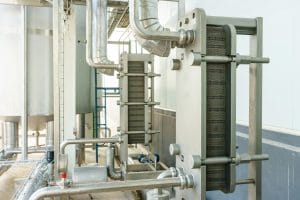 In addition to optimizing the science of thermal management, one of the greatest advantages that heat exchanger technology offers today’s industries is the ability to adapt to a wide variety of unique needs. For instance, many industries rely on thermal management for more than just cooling control panels, and many of those applications require the transfer or control of heat in areas much larger than an electrical enclosure. To address larger-scale thermal management needs, companies often rely on cold plate heat exchangers, which can apply the efficient and eco-friendly benefits of heat exchanger technology to an increasingly wider variety of applications. (more…)
In addition to optimizing the science of thermal management, one of the greatest advantages that heat exchanger technology offers today’s industries is the ability to adapt to a wide variety of unique needs. For instance, many industries rely on thermal management for more than just cooling control panels, and many of those applications require the transfer or control of heat in areas much larger than an electrical enclosure. To address larger-scale thermal management needs, companies often rely on cold plate heat exchangers, which can apply the efficient and eco-friendly benefits of heat exchanger technology to an increasingly wider variety of applications. (more…)
Common Hindrances to Efficient Thermal Management
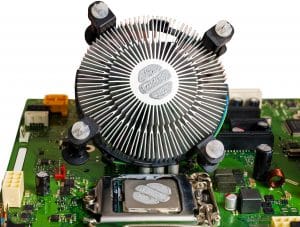 Every new technology comes with its own set of hurdles and challenges, but thermal management is something that all forms of technology must account for. Every computer processor and mechanical piece of equipment relies on some sort of cooling solution to prevent disastrous overheating. Typically, the solution chosen has a significant effect on the technology’s efficiency, which is why industries rely increasingly more on heat exchangers to overcome common hindrances to efficient thermal management. (more…)
Every new technology comes with its own set of hurdles and challenges, but thermal management is something that all forms of technology must account for. Every computer processor and mechanical piece of equipment relies on some sort of cooling solution to prevent disastrous overheating. Typically, the solution chosen has a significant effect on the technology’s efficiency, which is why industries rely increasingly more on heat exchangers to overcome common hindrances to efficient thermal management. (more…)
Heat Exchangers for Applications Outside of the Warehouse
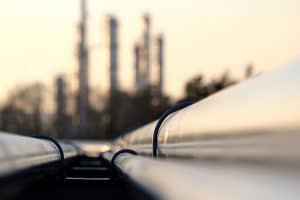 Some of the most well-known benefits of modern heat exchangers are the cost and energy savings they bring to manufacturing operations. They’ve also become increasingly more recognized for bringing those same benefits to smaller, highly precise applications, like cooling high-performance electronics and computer processors. For some industries, though, the most impactful benefit of heat exchangers is their ability to operate continuously and reliably in hazardous conditions. They can ensure optimal thermal management while maintaining the integrity of the equipment that the heat exchangers are affixed to. (more…)
Some of the most well-known benefits of modern heat exchangers are the cost and energy savings they bring to manufacturing operations. They’ve also become increasingly more recognized for bringing those same benefits to smaller, highly precise applications, like cooling high-performance electronics and computer processors. For some industries, though, the most impactful benefit of heat exchangers is their ability to operate continuously and reliably in hazardous conditions. They can ensure optimal thermal management while maintaining the integrity of the equipment that the heat exchangers are affixed to. (more…)
Important Ways Heat Exchangers Change Manufacturing
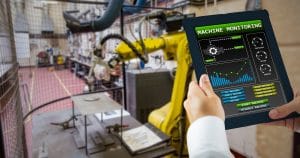 The field of manufacturing is often a proving ground for new technologies. For instance, manufacturing was the stage upon which automation first became a game-changer, and how the technology would affect manufacturing was one of the most talked-about impacts of it. Not long before that, the same was true for heat exchangers and the way manufacturers approached electrical thermal management. Today, heat exchangers still have notable impacts on the manufacturing industry. By simplifying thermal management, they help manufacturing equipment run more smoothly for longer while simultaneously reducing energy consumption. (more…)
The field of manufacturing is often a proving ground for new technologies. For instance, manufacturing was the stage upon which automation first became a game-changer, and how the technology would affect manufacturing was one of the most talked-about impacts of it. Not long before that, the same was true for heat exchangers and the way manufacturers approached electrical thermal management. Today, heat exchangers still have notable impacts on the manufacturing industry. By simplifying thermal management, they help manufacturing equipment run more smoothly for longer while simultaneously reducing energy consumption. (more…)
Saving More than Just Energy with Heat Exchangers
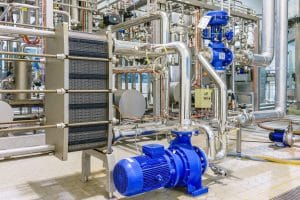 Heat exchangers are known for revolutionizing electrical thermal management several decades ago, and one of their most notable aspects is the ability to save energy, especially on applications that run around the clock. Today, heat exchangers have expanded that benefit by making it possible to harness electrical waste heat and turn it into free energy for certain applications. However, energy consumption isn’t the only thing that heat exchangers help companies save. With their help, companies also save space that would have otherwise been used for larger thermal management solutions, and they free up employees’ time so they can be more productive in other areas. (more…)
Heat exchangers are known for revolutionizing electrical thermal management several decades ago, and one of their most notable aspects is the ability to save energy, especially on applications that run around the clock. Today, heat exchangers have expanded that benefit by making it possible to harness electrical waste heat and turn it into free energy for certain applications. However, energy consumption isn’t the only thing that heat exchangers help companies save. With their help, companies also save space that would have otherwise been used for larger thermal management solutions, and they free up employees’ time so they can be more productive in other areas. (more…)
Powering the Eco-Cool Heat Exchanger
 With a cooling performance at 20oC ΔT: 980 Watts and ingress protection equal to NEMA 12, 4, and 4x standards, Noren’s newest line of Eco-Cool heat exchangers offers an impressively reliable solution to more efficient thermal management. The advanced units are also a culmination of decades of experience and innovation in the field of greener thermal management technology. The secret to the Eco-Cool heat exchanger’s evolution isn’t just its specifications, but the expertise and innovative heat transfer solutions that come together to make it work. (more…)
With a cooling performance at 20oC ΔT: 980 Watts and ingress protection equal to NEMA 12, 4, and 4x standards, Noren’s newest line of Eco-Cool heat exchangers offers an impressively reliable solution to more efficient thermal management. The advanced units are also a culmination of decades of experience and innovation in the field of greener thermal management technology. The secret to the Eco-Cool heat exchanger’s evolution isn’t just its specifications, but the expertise and innovative heat transfer solutions that come together to make it work. (more…)
How Heat Exchangers Affect Everyday Life
 For company leaders, managers, and employees who work closely with equipment that requires thermal management, heat exchangers have become fairly well-known. However, heat exchanger technology has made a significant impact that far extends the industrial world, and has transformed many aspects of daily life that aren’t always immediately apparent. From the quality of the environment in manufacturing communities to the personal devices we rely on and the foods we consume, most people enjoy the benefits of heat exchanger technology without even realizing it. (more…)
For company leaders, managers, and employees who work closely with equipment that requires thermal management, heat exchangers have become fairly well-known. However, heat exchanger technology has made a significant impact that far extends the industrial world, and has transformed many aspects of daily life that aren’t always immediately apparent. From the quality of the environment in manufacturing communities to the personal devices we rely on and the foods we consume, most people enjoy the benefits of heat exchanger technology without even realizing it. (more…)
What Does Green Thermal Management Look Like?
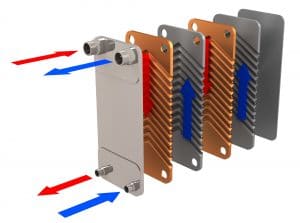 Every year, companies spend an exorbitant amount of capital on efforts to streamline productivity and reduce extraneous costs. Over the last decade, those efforts have increasingly included measures to institute greener, more eco-friendly technologies and procedures to lower their environmental footprints. Depending on the industry, those efforts can take many different forms, from implementing energy saving lighting and a policy of carpooling for employees. In most industries, however, the energy used to cool electrical control panels, prevent equipment from overheating, and control heat to facilitate manufacturing processes is one of most impactful areas to start thinking green. (more…)
Every year, companies spend an exorbitant amount of capital on efforts to streamline productivity and reduce extraneous costs. Over the last decade, those efforts have increasingly included measures to institute greener, more eco-friendly technologies and procedures to lower their environmental footprints. Depending on the industry, those efforts can take many different forms, from implementing energy saving lighting and a policy of carpooling for employees. In most industries, however, the energy used to cool electrical control panels, prevent equipment from overheating, and control heat to facilitate manufacturing processes is one of most impactful areas to start thinking green. (more…)
What to Do with Electrical Waste Heat
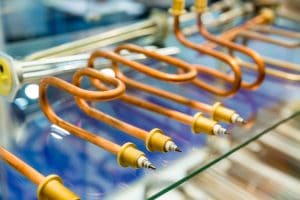 The answer to how to handle the waste heat that electrical systems give off used to be to eliminate it. With enough air conditioning power, any amount of heat can be eradicated. For advanced manufacturing equipment and technology, however, air conditioning isn’t usually a viable option. Not only is it cumbersome and expensive, but blasting cold air to eliminate hot air within an enclosure can produce condensation that damages the equipment your trying to protect. Heat exchangers offer a better answer by collecting waste heat and transferring it away from sensitive equipment. However, it’s what you can do with that energy once it’s collected that make heat exchangers even more beneficial. (more…)
The answer to how to handle the waste heat that electrical systems give off used to be to eliminate it. With enough air conditioning power, any amount of heat can be eradicated. For advanced manufacturing equipment and technology, however, air conditioning isn’t usually a viable option. Not only is it cumbersome and expensive, but blasting cold air to eliminate hot air within an enclosure can produce condensation that damages the equipment your trying to protect. Heat exchangers offer a better answer by collecting waste heat and transferring it away from sensitive equipment. However, it’s what you can do with that energy once it’s collected that make heat exchangers even more beneficial. (more…)
Designing Technology with Optimal Thermal Management in Mind
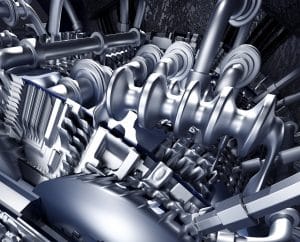 Despite the fact that effective waste heat management is vital to any technology, systems are often designed without proper consideration given to the application’s thermal management needs. Implementing a cooling solution is often left as an afterthought, and as a result, the application’s efficiency and reliability can suffer. The most effective way to ensure that any new system will operate at full capacity for as long as intended is to make sure that efficient thermal management is part of its design. For existing applications, customizable solutions such as heat exchangers can still offer optimal thermal management, thanks to their unique versatility. (more…)
Despite the fact that effective waste heat management is vital to any technology, systems are often designed without proper consideration given to the application’s thermal management needs. Implementing a cooling solution is often left as an afterthought, and as a result, the application’s efficiency and reliability can suffer. The most effective way to ensure that any new system will operate at full capacity for as long as intended is to make sure that efficient thermal management is part of its design. For existing applications, customizable solutions such as heat exchangers can still offer optimal thermal management, thanks to their unique versatility. (more…)







